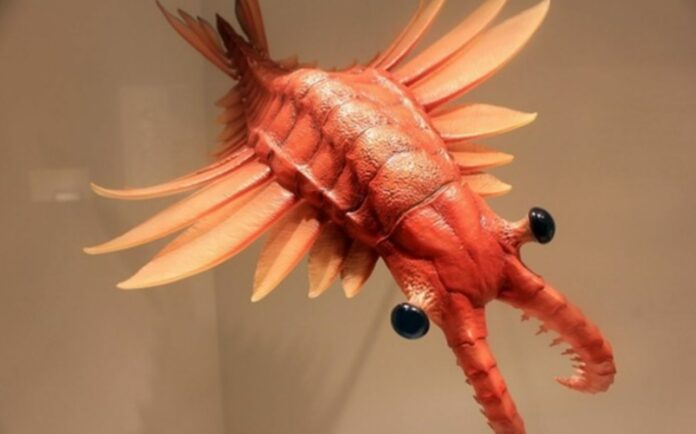In a major discovery, Chinese paleontologists have identified a new species of shrimp fossil that was excavated in the Yunnan province of Southwest China. The fossil, dating back 518 million years, adds to the understanding of the ancient marine life during that era. The finding is a valuable addition to the field of paleontology and provides new insights into the evolution of marine organisms.
According to the Chinese Academy of Sciences’ Nanjing Institute of Geology and Palaeontology, the new species, named Innovatiocaris maotianshanensis, was previously classified as an Anomalocaris, meaning “abnormal shrimp” due to its resemblance to the previously discovered radiodont.
The specimen of the new shrimp species was discovered in the early Cambrian fauna of the Chengjiang sedimentary deposit in Maotianshan Mountain. According to Zeng Han, an associate researcher at the institute, the fossil closely resembles the Anomalocaris and shares several key features such as a streamlined trunk with paired paddle-like blades and gill flaps for swimming and breathing, a pair of spiny pincers and a pair of large compound eyes on the head, and radial mouthparts beneath the head.
I.maotianshanensis, on the other hand, differs significantly from Anomalocaris in terms of its front claw morphology and a pair of exceptionally extended tail forks, according to Zeng.
Researchers also performed an evolutionary examination of the genus, which revealed that it is already extremely near to the evolutionary beginning point of Anomalocaris, according to research leader Zhao Fangchen.
In addition, Zhao noted that the finding offers crucial insights into the development and ecology of early euarthropods during the early Cambrian era.
Journal of the Geological Society published the study in December 2022.
